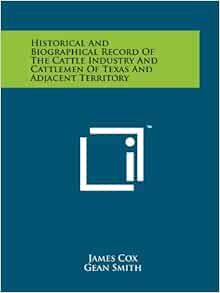
- OFFICE 2016 FOR MAC UPDATE HISTORY INSTALL
- OFFICE 2016 FOR MAC UPDATE HISTORY UPDATE
- OFFICE 2016 FOR MAC UPDATE HISTORY MANUAL
- OFFICE 2016 FOR MAC UPDATE HISTORY LICENSE
OFFICE 2016 FOR MAC UPDATE HISTORY UPDATE
In this case, additional entries will appear in the domain configuration branch CN=Activation Objects,CN=Microsoft SPP,CN=Services,CN=Configuration.Ĭlose the VAT window, and press ENTER in the update tool console.
OFFICE 2016 FOR MAC UPDATE HISTORY INSTALL
Therefore, to properly install the KMS server for ADBA activation, you will need Enterprise Admin privileges. Now you only have to activate your KMS key.Ī warning that a new object will be created in the AD forest appears. Then you have to enter the same KMS Host key (CSVLK) and specify its name (optional). This activation method works only for Windows 10/ 8.1 and Windows Server 2019 / 2016 / 2012 / 2012 R2. If you are going to use ADBA for the automatic activation of Office 2019/2016 on the computers in the AD domain, select Active Directory-Based Activation as a volume activation method in Volume Activation Tools. Office 2019/2016 Activation Using Active Directory (ADBA) Run the file volumelicensepack you have downloaded on your KMS as an administrator.
OFFICE 2016 FOR MAC UPDATE HISTORY LICENSE

The next step is to download and install on the KMS server the following extension package – Microsoft Office Volume License Pack. Updating KMS Server to Support Office 2019/2016 Volume Activationįirst of all, you have to find and copy a KMS Host key for Office 2019 or 2016 in your personal section on Microsoft Volume Licensing Service Center (VLSC) website.
OFFICE 2016 FOR MAC UPDATE HISTORY MANUAL
If you find there are too many steps in the manual operation and if you are tired of following all the steps, the Uninstaller in Macube Cleaner (opens new window) can help you a lot. Step 2: Ctrl + click and choose "Options".Īfter all the steps above, restart your Mac to finish the uninstallation for MS Office completely. Step 1: If any Office apps are put in the dock on your Mac. Ctrl + click or right-click on each of these folders below if present, and select "Move to Trash". Step 6: Click the back arrow to go back to Library folder. Step 5: Back to Finder, head to Library > Containers. Step 4: In the dialog box, tick "Show Library Folder" and click "Save". Step 3: Then click on "View > Show View Options". Step 2: In Finder, click "View > as List".

Step 3: Ctrl + Click the selected applications and then choose "Move to Trash". Step 2: Press "Command" button and click to select all the Office 365 applications. Remove MS Office 365 Applications on Mac: If not, empty Trash and restart the Mac.Ĭompletely uninstalling Office 365, the 2016 edition, on Mac includes three parts. Step 4: Check whether there is anything you still want to keep in Trash. And then remove Office from Mac to Trash. Step 3: Locate Microsoft Office 2011 folder.

Step 1: Quit all the Office applications first, no matter it is Word, Excel, PowerPoint or OneNote. Note that to uninstall Office 365 on your Mac manually requires to be signed in as an administrator on the Mac. Uninstall Office 365 (2011/2016) on Mac Manually


 0 kommentar(er)
0 kommentar(er)
